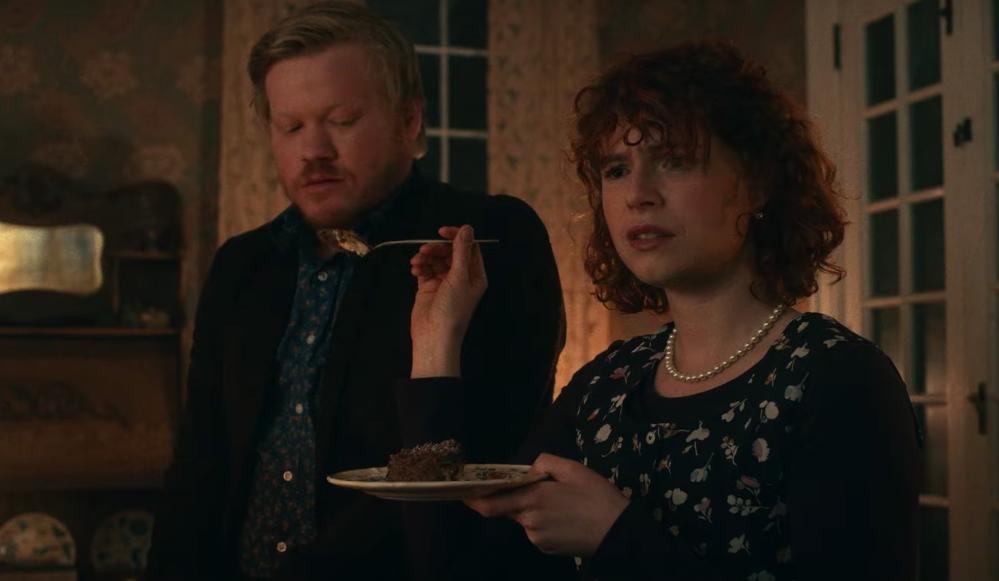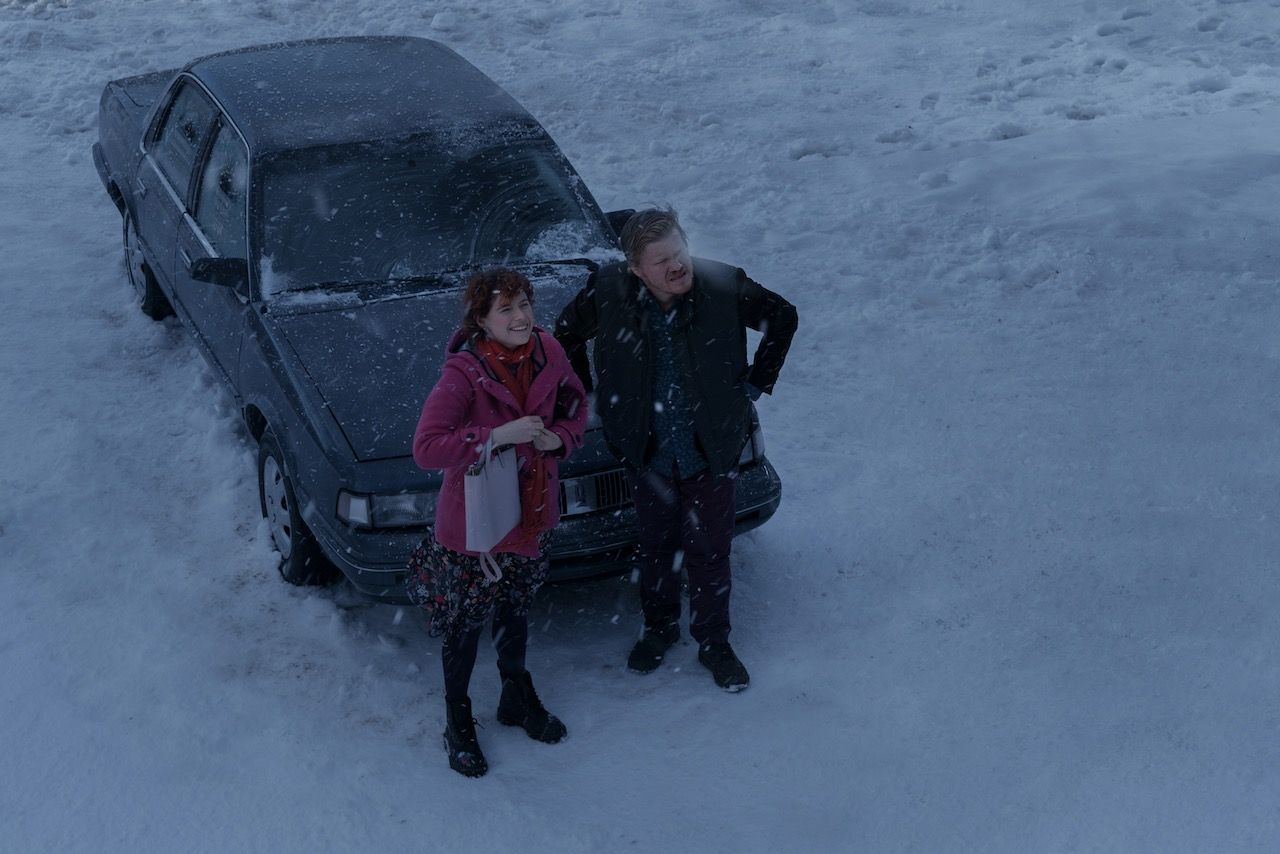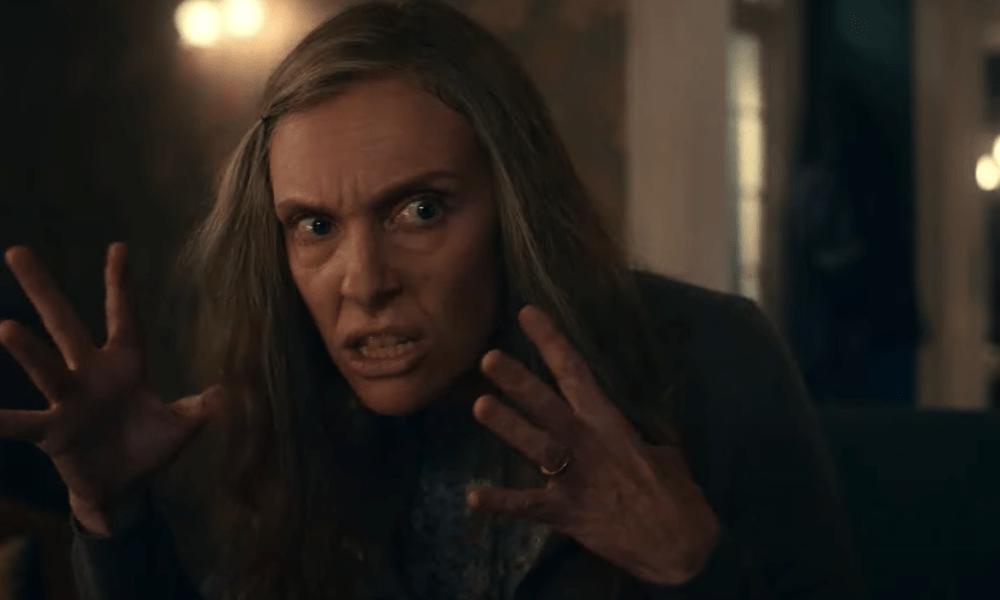By Tilly Long, Third Year, English
Although autumn doesn’t officially start until the 22nd of September, I’m Thinking of Ending Things (2020) feels like an aptly bittersweet release to welcome the new term with. Its infamously polarising director, Charlie Kaufman, is best known for being one of the most celebrated screenwriters of his era, gaining four Oscar nominations with the likes of Eternal Sunshine of the Spotless Mind (2004) and Being John Malkovich (1999).
Whilst his films tend to follow the bizarre plights of one man navigating his lonely condition (see also Synecdoche, New York (2008) and Anomalisa (2015)), Netflix has given Kaufman complete creative control over this new feature, and it certainly shows.

From the moment our protagonist (Jessie Buckley), whose name changes as frequently as the colour of her duffle coat, steps into her boyfriend Jake’s (Jesse Plemons) car for a first-time trip to his parent’s farm in Oklahoma, something feels off. In a humorously Fleabag-esque way, Jake constantly interrupts her stream of consciousness narration, as though he, like the audience, can hear her innermost thoughts. They both study quantum physics, even making the same jokes and gestures in unison. As the plot develops, it becomes difficult to distinguish between where Jake ends and the Young Woman (the name the credits give her) begins.
At first it seems strange that a film with such a grandiose birth-to-death sweep, was shot in a television format (4:3). But the claustrophobia inherent in this aspect ratio is reinforced with every close up. There is nowhere else to look or hide. Branded perhaps misleadingly as a horror, some of the eeriest moments occur during the indulgently long car journey scenes. Buckley breaks the fourth wall by shooting the camera nervous glances or deadpan stares whilst reciting a depressing, ‘original’ poem which seems to reflect someone else’s world view entirely. “Coming home is just awful… you sigh into the onslaught of identical days.” She is not the one “coming home” after all... or is she?

Upon arrival at his equally beguiling mother (Toni Collete) and father’s (David Thewlis) home, matters only become more perplexing. Frustrating dinner table conversations debate the Young Woman’s melancholic landscape paintings, which she later discovers in the basement, complete with Jake’s signature on them. Despite fleetingly delighted smiles from Collete, the facade soon begins to slip, when she asks her twenty-something-year-old son to “remember [his] 50th birthday?”
In a never-ending game of spot the difference, you can even try to notice exactly when her face will rapidly age backwards and forwards, depending on which room she is in. A prepubescent photo of Jake hung up on the wall uncannily resembles his girlfriend, who decides to wander upstairs in search of answers.
His childhood bedroom seems to hold the key to what the film is ultimately trying to conjure: Jake’s psyche. Its contents possess every highbrow reference the Young Woman has methodically recited up to this point, as well as an urn for the beloved dog she had just stroked ten minutes ago. In true Kaufman style, the leading female is a projection of another man’s mind, plagued by the futility of his existence and inevitable aging. Viewing the film through this lens of interpretation allows for comedy to ensue. Here we have a male who has imagined his own girlfriend, but remains both incessantly irked by her opinions, and insecure that she is “thinking of ending things” with him.

Their drive home turns increasingly surreal, prompted by a deadly snowstorm and detour to a Tulsey Town kiosk, which looks like a scene pulled straight from an Edward Hopper oil painting. The final act in Jake’s old school feels like a lucid dream, or perhaps even the hallucinations of the elderly janitor we have also been keeping tabs on throughout the film, as he complies with an immensely mundane routine.
I’m Thinking of Ending Things is embedded with a profound understanding of insecurity, which some will find incredibly reassuring. Others may struggle to get through Kaufman’s least accessible film yet, as it continues to elude after several rewatches. Either way, as our unnamed protagonist encouragingly discloses to us: “soon this will all be a distant memory.”
Featured: IMDb / Netflix
Have you seen I'm Thinking of Ending Things? Let us know!









